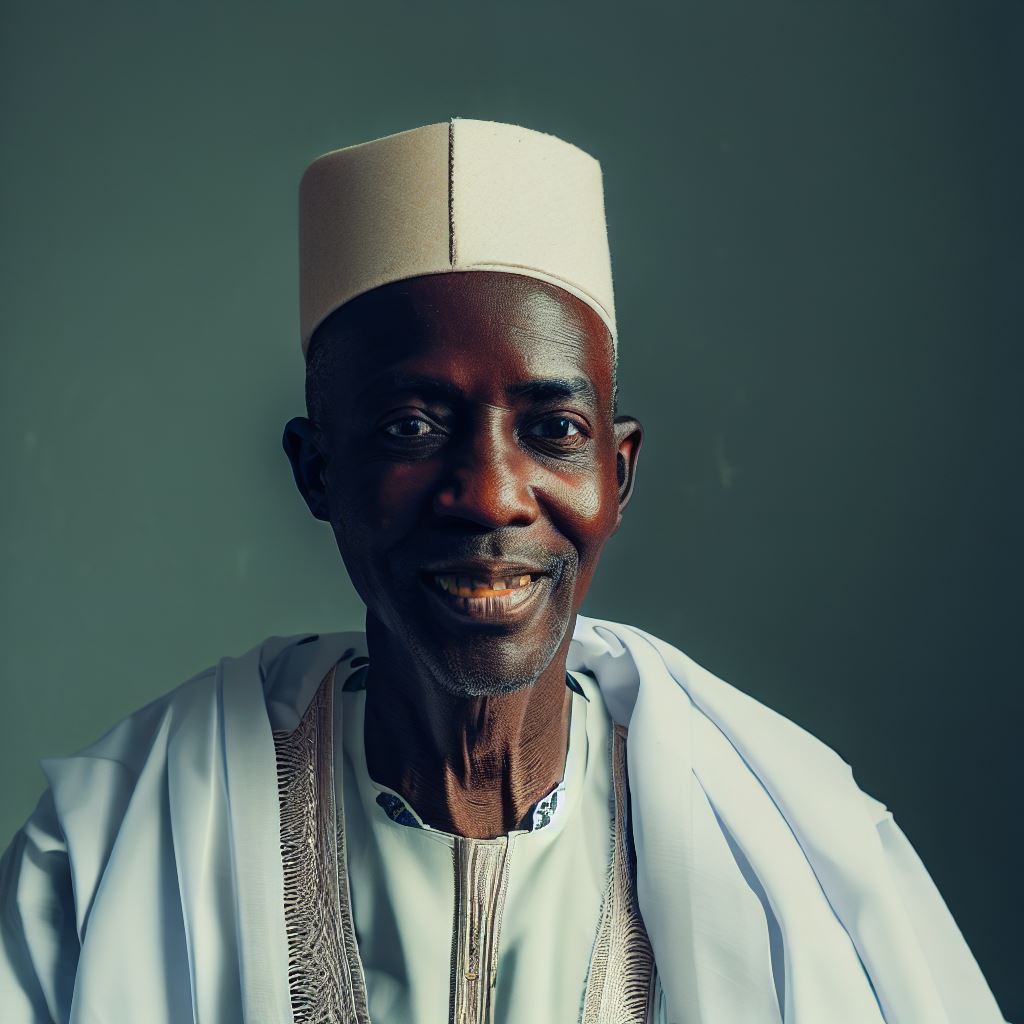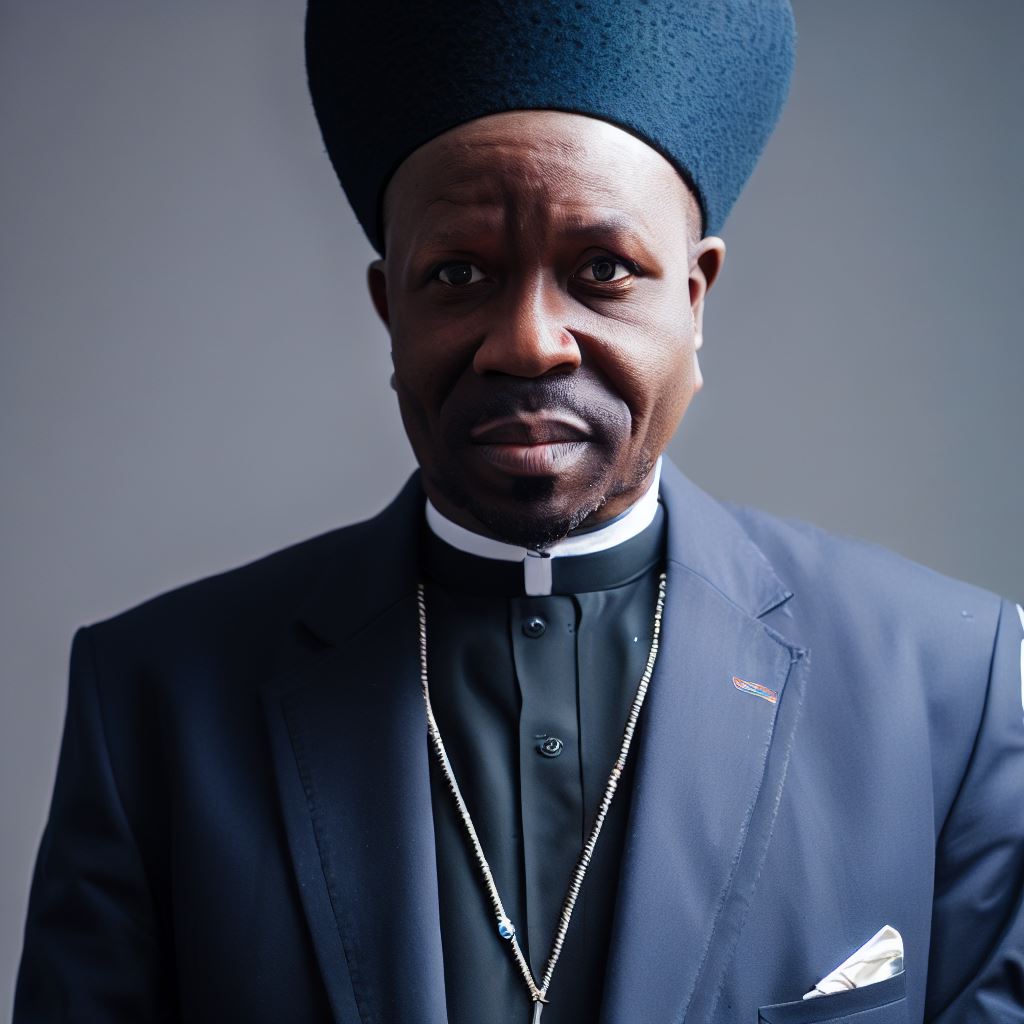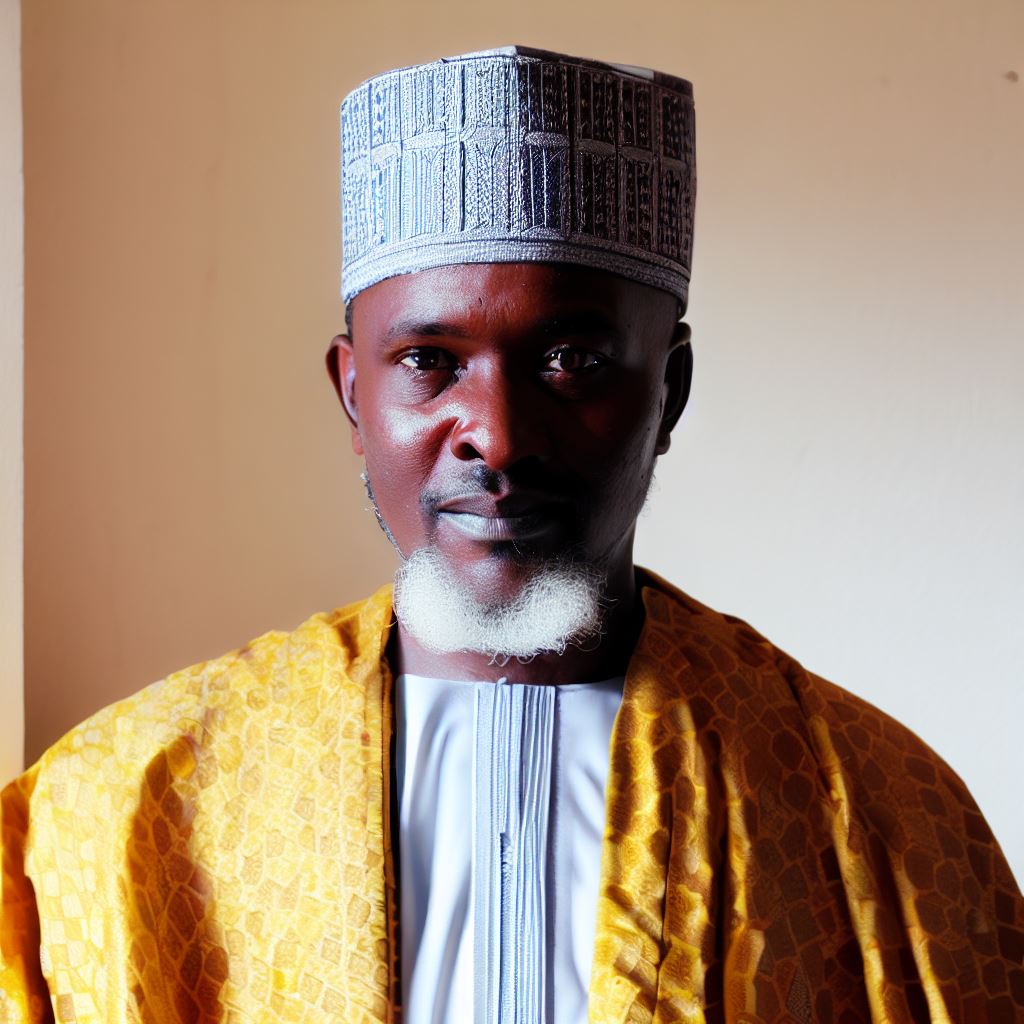Introduction
Nigerian Clergy Role in Education and Community Care : A Nigeria clergy is a religious leader who plays a significant role in the country’s education and community care.
Education and community care are highly important in Nigeria because they contribute to the overall development and well-being of the people.
Education helps to provide individuals with knowledge and skills that are necessary for personal growth and the advancement of society.
It empowers individuals to contribute meaningfully to their communities and allows for the acquisition of valuable skills that can lead to employment opportunities.
Community care, on the other hand, focuses on the welfare and well-being of the community as a whole.
It encompasses activities such as providing healthcare services, supporting vulnerable individuals, and promoting social cohesion.
The Nigerian clergy plays a crucial role in promoting education and community care.
They often establish schools and educational institutions to ensure that members of the community have access to quality education.
Additionally, they allocate resources and funds for the development of educational facilities.
Moreover, the clergy also actively engage in community care initiatives.
They partner with organizations and individuals to provide healthcare services, support orphanages, and contribute to the overall development of communities.
Their influence and guidance contribute to the positive growth and development of Nigeria as a whole.
The Nigerian clergy’s role in education and community care is vital for the progress of the country.
Through their efforts, education becomes accessible, and communities receive the necessary support for their well-being.
The clergy’s involvement is crucial for tackling societal challenges and promoting a thriving nation.
Historical Background of Nigerian Clergy’s Role in Education
Establishment of early missionary schools
The Nigerian clergy’s involvement in education can be traced back to the establishment of early missionary schools.
These schools were set up by foreign missionaries who arrived in Nigeria in the 19th century.
The clergy recognized the importance of education in spreading Christianity and providing opportunities for the local population.
They believed that education would not only benefit individuals but also contribute to the development of the entire community.
Spread of Christianity and subsequent growth of educational institutions
As Christianity spread across Nigeria, the Nigerian clergy played a key role in the growth of educational institutions.
They established and managed schools, aiming to provide quality education to both Christians and non-Christians.
These educational institutions became centers of learning and enlightenment, fostering intellectual and moral development.
The clergy emphasized the importance of education as a means of uplifting individuals and empowering communities.
Collaboration with local communities to provide access to education
The Nigerian clergy collaborated closely with local communities to ensure access to education for all.
They worked hand in hand with community leaders and elders to identify educational needs and establish schools.
This collaboration helped create a sense of ownership and participation in the education process.
The Nigerian clergy encouraged parents to send their children to school and supported students through scholarships and other means.
They believed that education was a key factor in breaking the cycle of poverty and improving living standards.
The historical background of the Nigerian clergy’s role in education can be attributed to the establishment of early missionary schools.
These schools, initiated by foreign missionaries, led to the spread of Christianity and the subsequent growth of educational institutions.
The Nigerian clergy collaborated with local communities, working towards providing access to education for all.
Their efforts aimed at empowering individuals, developing communities, and creating a brighter future for Nigeria.
Read: Ethics and Integrity: Core Values of Nigeria’s Clergy
Current Role of Nigerian Clergy in Education
Establishment and management of religious schools
The Nigerian clergy play a crucial role in the establishment and management of religious schools that provide education to thousands of students across the country.
These schools are not only focused on academic excellence but also emphasize moral and spiritual values, in line with Christian teachings.
The clergy’s involvement ensures that these schools are well-equipped, staffed with qualified teachers, and provide a conducive learning environment.
By establishing and managing religious schools, the clergy actively contribute to the educational landscape of Nigeria.
Provision of scholarships and financial support for students
The Nigerian clergy recognize the importance of education and the barriers faced by many students in accessing quality education.
As a result, they actively provide scholarships and financial support to deserving students with limited financial resources.
Through their philanthropic efforts, the clergy enable talented and motivated students to pursue their educational aspirations without the burden of financial constraints.
This support not only benefits individual students but also contributes to the overall development of the community and nation.
Integration of Christian values into educational curriculum
The Nigerian clergy believe that education should not only focus on academic knowledge but also instill moral values in students.
They actively collaborate with educational institutions to integrate Christian values into the curriculum and teaching methodologies.
This ensures that students not only receive a holistic education but also develop a strong character rooted in Christian principles.
By infusing Christian values into the educational system, the clergy actively contribute to building a society grounded in ethics and morality.
The Nigerian clergy’s role in education is significant and multi-faceted.
Through their establishment and management of religious schools, provision of scholarships, and integration of Christian values into the educational curriculum, they actively contribute to the development of individuals and the community.
Their tireless efforts in ensuring quality education and fostering moral values are crucial in shaping the future of Nigeria.
The Nigerian clergy’s commitment to education and community care serves as a shining example for others to follow.
Read: The Impact of Religion: Nigeria’s Clergy and Society
Nigerian Clergy’s Contribution to Community Care
Provision of healthcare services in remote areas
- Clergy members actively engage in providing healthcare services to remote areas.
- They establish medical clinics and dispensaries to cater to the healthcare needs of the community.
- These healthcare services include primary care, immunization programs, and prenatal and postnatal care.
- The clergy also organize medical missions and outreach programs to reach more people in need.
- Their active involvement ensures that even the underserved communities receive adequate healthcare facilities.
Establishment and management of orphanages and care centers
- Nigerian clergy play a crucial role in establishing and managing orphanages and care centers.
- They provide shelter, food, education, and emotional support to orphaned and abandoned children.
- Clergy members work tirelessly to provide a caring and nurturing environment for these vulnerable children.
- They also collaborate with government agencies and other non-profit organizations to ensure holistic support.
- Through their efforts, many children have been given a chance at a better life and a brighter future.
Promotion of community development projects
- The Nigerian clergy actively promotes community development projects.
- They initiate projects that focus on infrastructure development, such as building schools and roads.
- These projects aim to improve the quality of life and create opportunities for the community.
- Clergy members also encourage entrepreneurship and vocational training programs to empower the community.
- By fostering community development, the clergy contributes to the overall well-being and growth of society.
The Nigerian clergy’s role in education and community care is commendable.
They actively participate in providing healthcare services in remote areas, ensuring that even the most underserved communities have access to medical facilities.
The establishment and management of orphanages and care centers show their commitment to nurturing and protecting vulnerable children.
Additionally, their efforts in promoting community development projects contribute to improving the quality of life and creating opportunities for the community as a whole.
The Nigerian clergy’s dedication and active engagement in education and community care are truly admirable and make a significant impact on society.
Read: Training for Clergy in Nigeria: A Comprehensive Review
Challenges Faced by Nigerian Clergy in Education and Community Care
Insufficient funding and resources
- Lack of financial support hampers the ability of the Nigerian clergy to provide quality education and community care.
- Limited resources impede the progress and expansion of educational and community initiatives led by the clergy.
- Inadequate funding restricts the implementation of necessary programs to improve education and community services.
Political interference and lack of support from government
- Nigerian clergy face challenges in education and community care due to political interference and lack of government support.
- The clergy’s efforts in education and community care are often hindered by political agendas and lack of partnerships with the government.
- Lack of government support results in limited access to resources and limited capacity to make significant changes in the communities they serve.
Security concerns in certain regions affecting provision of services
- The Nigerian clergy encounter security challenges in education and community care, particularly in regions affected by conflicts and violence.
- Security concerns hinder the clergy’s ability to operate schools and community centers in areas with high levels of insecurity.
- The safety of clergy members and the community becomes a major obstacle in delivering comprehensive education and community care.
Overall, the Nigerian clergy face several challenges in their efforts to contribute to education and community care. Insufficient funding and resources limit their capacity to provide quality services.
Political interference and lack of government support further impede their initiatives. Additionally, security concerns in certain regions create obstacles in the provision of education and community care.
Despite these challenges, the Nigerian clergy continue to work tirelessly to make a positive impact on the lives of individuals and communities they serve.
Learn More: Insights into Nigeria’s Growing Mega-Church Pastor Trend
Learn More: The Growth of Interfaith Dialogue in Nigeria’s Clergy
Success Stories and Impact of Nigerian Clergy’s Efforts
Notable achievements in improving education and community care
- The Nigerian clergy has played a pivotal role in establishing schools and educational institutions across the country.
- Through their efforts, access to quality education has significantly improved, especially in rural and underserved areas.
- They have implemented various initiatives to address the lack of educational resources, including the establishment of libraries and computer centers.
- Many clergy-led schools have consistently produced exemplary academic results, raising the overall standard of education in Nigeria.
- In the field of community care, Nigerian clergy have actively worked towards improving healthcare facilities and services.
- They have constructed hospitals, provided medical supplies, and facilitated training programs for healthcare professionals.
- Nigerian clergy have also played a vital role in addressing societal issues such as poverty and unemployment through skill acquisition programs.
Positive effects on individuals and communities
- The efforts of Nigerian clergy have resulted in an increase in literacy rates and educational attainment among individuals.
- Through education, individuals have gained valuable skills, leading to improved job prospects and economic empowerment.
- Community care initiatives have resulted in better healthcare access, leading to improved health outcomes and reduced mortality rates.
- The clergy’s focus on community development has empowered individuals to actively participate in shaping their communities.
- Through various social projects, they have instilled a sense of unity and solidarity among community members.
- Improved education and community care have created a positive ripple effect, fostering overall societal development and progress.
- Communities have experienced a decrease in crime rates and social vices due to the clergy’s efforts in providing education and care.
The success stories and impact of Nigerian clergy’s efforts in education and community care are commendable.
Through their dedication and visionary leadership, they have transformed countless lives and communities.
These achievements serve as inspiration for future generations to continue prioritizing education and community well-being.
The Nigerian clergy’s active role and tireless efforts in these areas highlight the importance of their contributions to the nation’s progress.
However, there is still much work to be done to ensure access to quality education and comprehensive community care for all Nigerians.
Continued support and collaboration with the clergy can further enhance the positive impact on individuals and communities.
Together, we can strive for a Nigerian society where education and community care are prioritized and accessible to all, leaving no one behind.
Read: How to Join the Clergy in Nigeria: A Step-by-Step Guide

Future Prospects and Recommendations
Importance of continued support and collaboration
- The Nigerian clergy’s role in education and community care is vital and should be continuously supported.
- Collaboration between the clergy, government, and other stakeholders is essential for lasting impact.
- By providing financial resources and logistical support, the clergy’s efforts can be scaled up across the country.
- Donors and philanthropists should recognize the clergy’s role and contribute to their initiatives.
- Engaging the local community and empowering them to be part of the solution is crucial.
Addressing challenges through partnerships and advocacy
- Partnerships between the clergy, NGOs, and educational institutions can address existing challenges effectively.
- Advocacy campaigns can raise awareness about the importance of education and community care.
- The clergy can collaborate with local authorities to address issues like poverty, healthcare, and social injustices.
- Efforts should be made to eradicate gender inequality and promote equal access to education and community services.
- Sensitizing the clergy about modern challenges like climate change can enable them to address environmental issues.
Policy recommendations to enhance the clergy’s role in education and community care
- Government policies should recognize and support the contributions of the clergy in education and community care.
- Incorporating religious teachings in school curricula can promote moral values and social responsibility.
- Establishing partnerships between the clergy and educational institutions can improve infrastructure and resources.
- Creating mentorship programs that connect the clergy with underprivileged youth can have a profound impact.
- Offering tax incentives to individuals and organizations supporting the clergy’s initiatives can encourage more contributions.
The Nigerian clergy’s role in education and community care is indispensable for the country’s development.
Continued support and collaboration, addressing challenges through partnerships and advocacy, and implementing policy recommendations can enhance their impact and create a brighter future for the Nigerian society.
Conclusion
Recap of main points
The Nigerian clergy plays a crucial role in education and community care. They are responsible for providing spiritual guidance, supporting educational initiatives, and promoting community development.
Throughout this blog, we have highlighted the various ways in which the Nigerian clergy actively contribute to the betterment of society.
Firstly, they serve as moral compasses, imparting values and ethics to both young and old. Their teachings promote honesty, compassion, and responsibility.
Secondly, the clergy actively participate in educational initiatives. They establish schools, organize educational programs, and offer scholarships to deserving students.
Furthermore, the clergy plays a significant role in community care. They offer counseling services, organize medical camps, and provide financial assistance to those in need.
Emphasis on the valuable role of Nigerian clergy in education and community care
It is undeniable that the Nigerian clergy’s contributions to education and community care are invaluable. They inspire and empower individuals, improve educational opportunities, and uplift communities.
By combining their spiritual leadership with practical initiatives, the clergy creates a positive impact on society at large.
Call to action for further support and recognition
As members of society, it is our responsibility to support and recognize the remarkable work of the Nigerian clergy.
We can contribute by volunteering our time, resources, or expertise to Nigerian Clergy Role in Education and Community Care programs led by religious organizations. By doing so, we can help amplify their impact and reach.
It is crucial that we acknowledge the significance of their role and encourage others to do the same.
Together, we can ensure a brighter future for Nigeria, where education and community care thrive with the support of the clergy.




